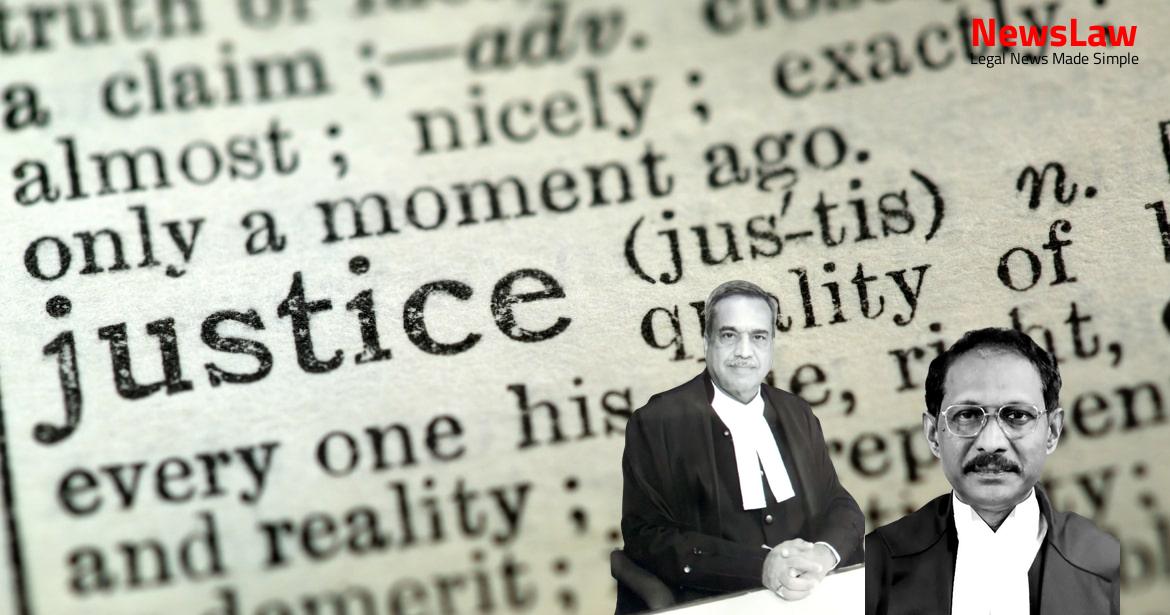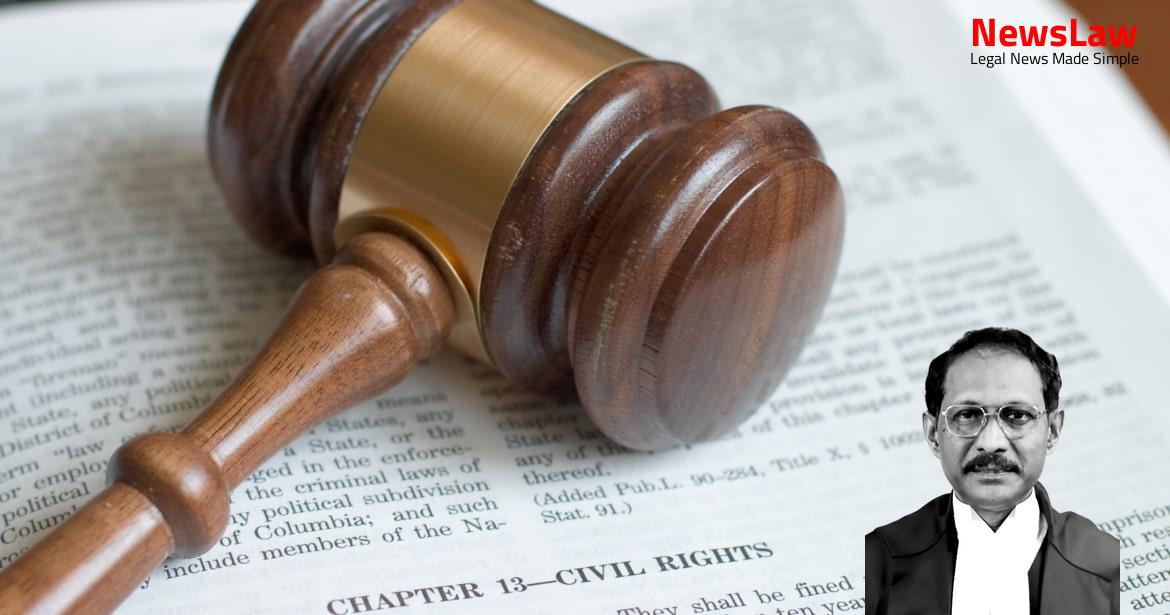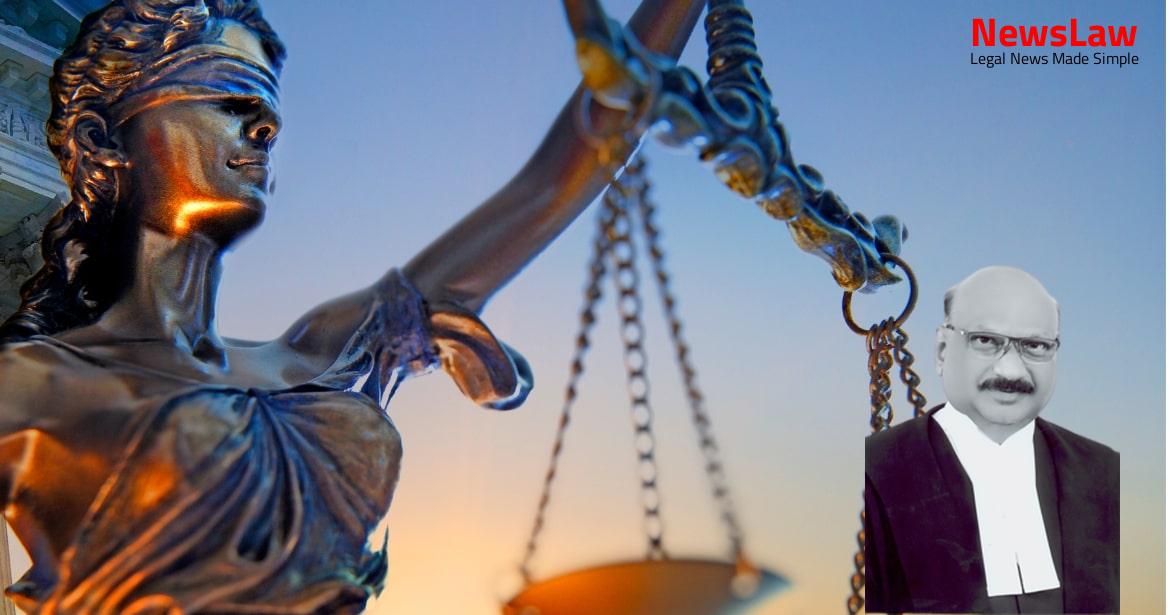In a recent landmark decision, the Supreme Court of India deliberated on the exemption of religious premises from rent control laws. The case revolved around the validity and impact of the Religious Premises Act, particularly in relation to the preservation of properties belonging to religious institutions. The judgment holds significance for the regulation of rent and eviction procedures concerning religious premises. Stay informed about the key details of this crucial legal case!
Facts
- No formal lease or agreements were executed between the appellants and Gurudwara Singh Sabha, leading to progressively increased rents over time
- SGPC filed an eviction petition against Harbhajan Singh under the East Punjab Rent Act citing non-payment of rent and the need for property for construction
- SGPC informed the appellants to pay rent to SGPC due to control of gurudwara affairs
- Appellants have been paying rent to SGPC without regular receipts issued
- Eviction proceedings against the appellants remained pending without a decision
- Introduction of the Religious Premises Act in 1998 led to SGPC filing ejectment petitions for unauthorized occupation
- Appellants challenged the Religious Premises Act via writ petitions which were dismissed by the High Court
- Harbhajan Singh deposited arrears of rent upon first hearing
- Current civil appeal challenges the High Court’s judgment dismissing writ petitions
- Appellants raised pleas were rejected by Division Bench of High Court
- High Court referred to object and purpose of enactment to preserve property of religious institutions
- Stated that public has inherent interest in religious institutions prone to maladministration and mismanagement
Also Read: Judgment in the Case of Sundew Properties Ltd. v. TSERC & APTEL
Arguments
- The contention before the Court is not that religious and charitable institutions like churches, mosques, dioceses, monasteries, convents, wakfs, and madarsas are not religious and charitable in nature.
- The counsel for the respondents argues there has been a total non-application of mind by the Government in granting exemption, failing to follow guidelines from the S. Kandaswamy Chettiar case.
- In the S. Kandaswamy Chettiar case, an affidavit detailed exploitation of charitable institutions by tenants leading to unjust situation.
- The purpose of the Act is to prevent unreasonable eviction and control rent, but allowing trustees to charge market rent and evict tenants for non-payment could result in hardship.
- There is no evidence to suggest that landlords of religious and public charities would resort to such harsh actions.
- Exempting buildings belonging to public trusts or religious institutions from the Act can facilitate better fulfillment of their purpose, if that was the intent behind the government’s grant of exemption.
- Arguments are raised about the ownership of property, challenging the distinction made in the present case.
Also Read: High Court Judgment on Renewal of Mining Leases: State of Odisha vs. Thakurani Global Processors
Analysis
- The definition of ‘religious institution’ includes gurudwaras, temples, churches, mosques, temples of Jains or Buddhists registered under the Societies Registration Act.
- The term ‘religious premises’ includes land, buildings, gardens, out-houses, and fittings belonging to a religious institution.
- Unauthorised occupation of religious premises is determined by possession without a valid allotment, lease, or grant.
- Payment of rent alone does not establish authorised occupation of religious premises.
- Persons with valid and subsisting allotments, leases, or grants are not considered unauthorised occupants.
- Specific procedure for eviction of unauthorised occupants is outlined in Sections 4 and 5 of the Religious Premises Act.
- The Court discusses the exemption granted under the Tamil Nadu Act in favor of trusts or endowments and upholds its validity.
- The Collector is authorized to pass eviction orders after considering causes shown by the occupants and examining evidence presented by them.
- The tenant must be given a reasonable opportunity to be heard in cases of eviction.
- The Act creates an artificial classification, treating tenants of religious institutions differently from other tenants, which is deemed discriminatory.
- Challenges to the vires of the Religious Premises Act on the basis of existing enactments are discussed and justified.
- The Court emphasizes the importance of classification based on rational grounds in granting exemptions to religious institutions.
- Rent control enactments and their protections for tenants are examined in the context of religious premises.
- The Act provides a mechanism for eviction of unauthorized occupants, with provisions for appeal and judicial review.
- An appeal can be made to the Commissioner against the Collector’s eviction order, with further recourse to the High Court through writ jurisdiction.
- The Act’s provisions for eviction after lease termination are criticized as unjust and unfair, deeming long-term tenants as unauthorized occupants.
- The Act’s focus on religious premises and the rationale behind its enactment to help religious institutions in regaining possession of their properties is highlighted.
- The purpose and objectives of the Act are outlined as facilitating the vacation of premises under unauthorized occupation through summary proceedings.
- The Act’s impact on old tenants, potential displacement by new tenants, and achievement of social objectives are touched upon.
- The right of religious institutions to seek eviction through summary procedures and the Collector’s issuance of show-cause notices are mentioned.
- The Act’s objective of vacating premises under unauthorized occupation through summary proceedings is reiterated.
- The historical context of the East Punjab Rent Act and the State’s authority to enact the Religious Premises Act despite existing laws are explained.
- Trustees of public religious trusts and public charities need the right to evict tenants for non-payment of market rent.
- Exemption for public religious and charitable buildings from rent control laws was justified to prevent undue hardship.
- Religious institutions can be treated as a separate category in rent control legislation without violating Article 14.
- Legislature can make rational classification for buildings belonging to different types of institutions.
- Withdrawal of protection from tenants of exempted religious institutions in rent control was justified.
- Separate classification of properties of religious institutions for rent control laws is considered valid under Article 14.
- The court found no merit in the present appeal
- The appeal was dismissed
- No order was issued regarding costs in this case
Also Read: Arvind Kejriwal vs. Directorate of Enforcement: Interim Bail Granted by Supreme Court of India
Case Title: HARBHAJAN SINGH . Vs. STATE OF PUNJAB .
Case Number: C.A. No.-003674-003674 / 2009



